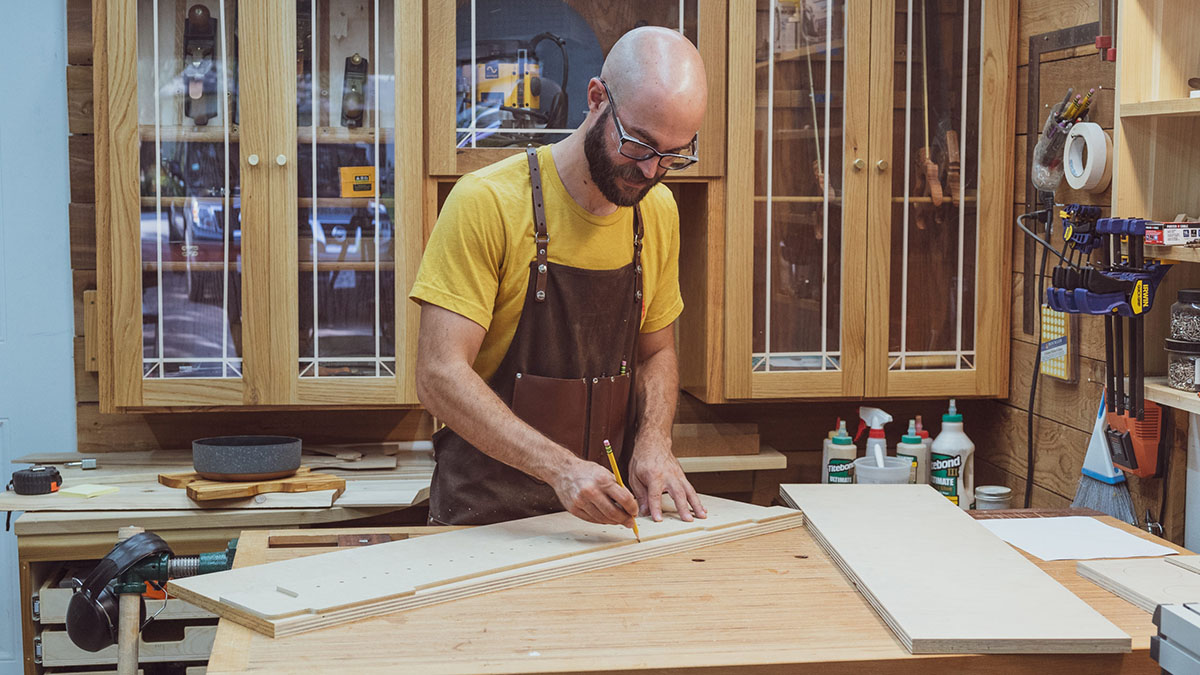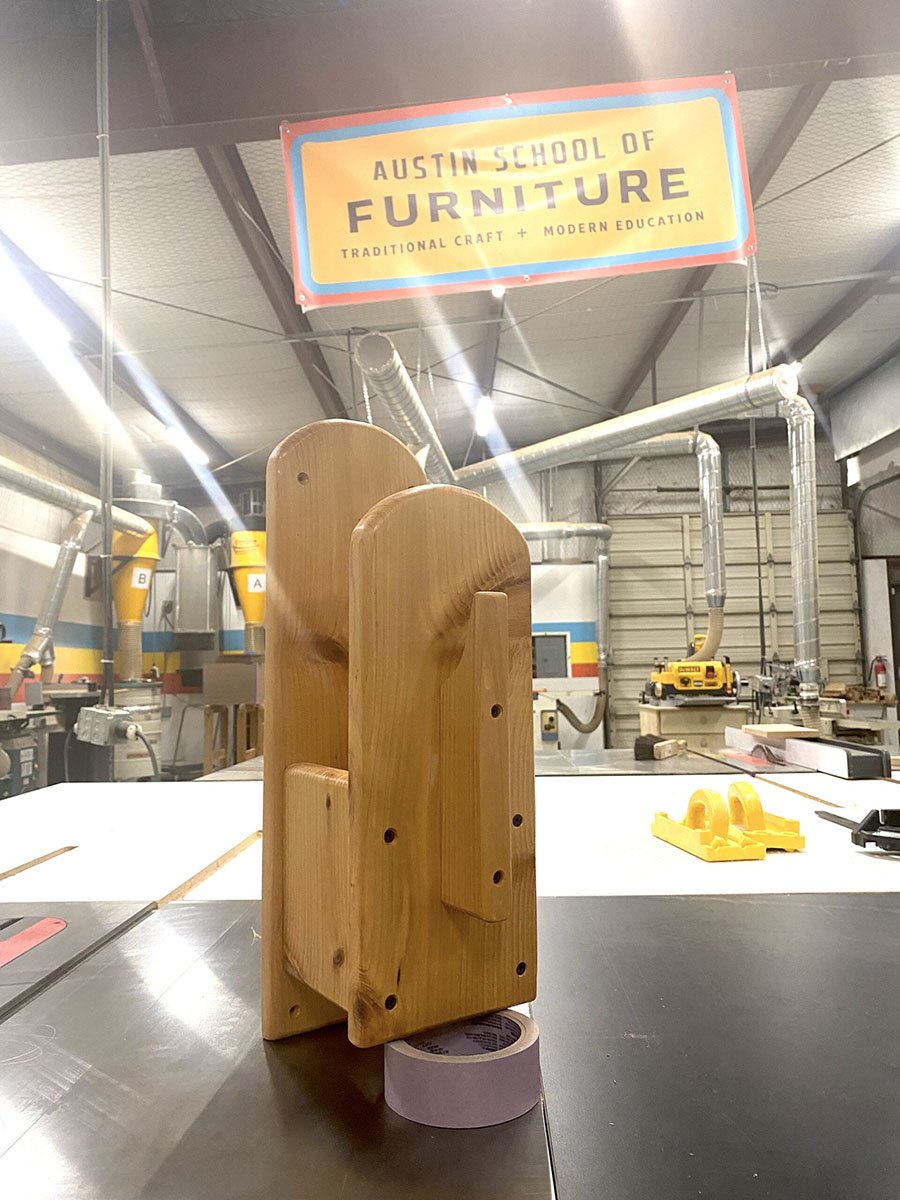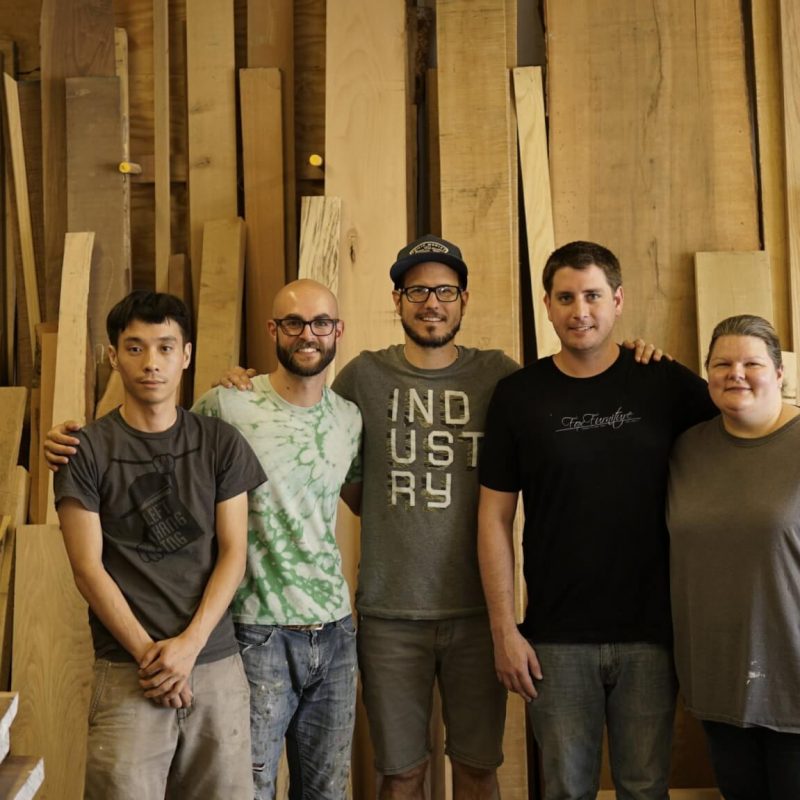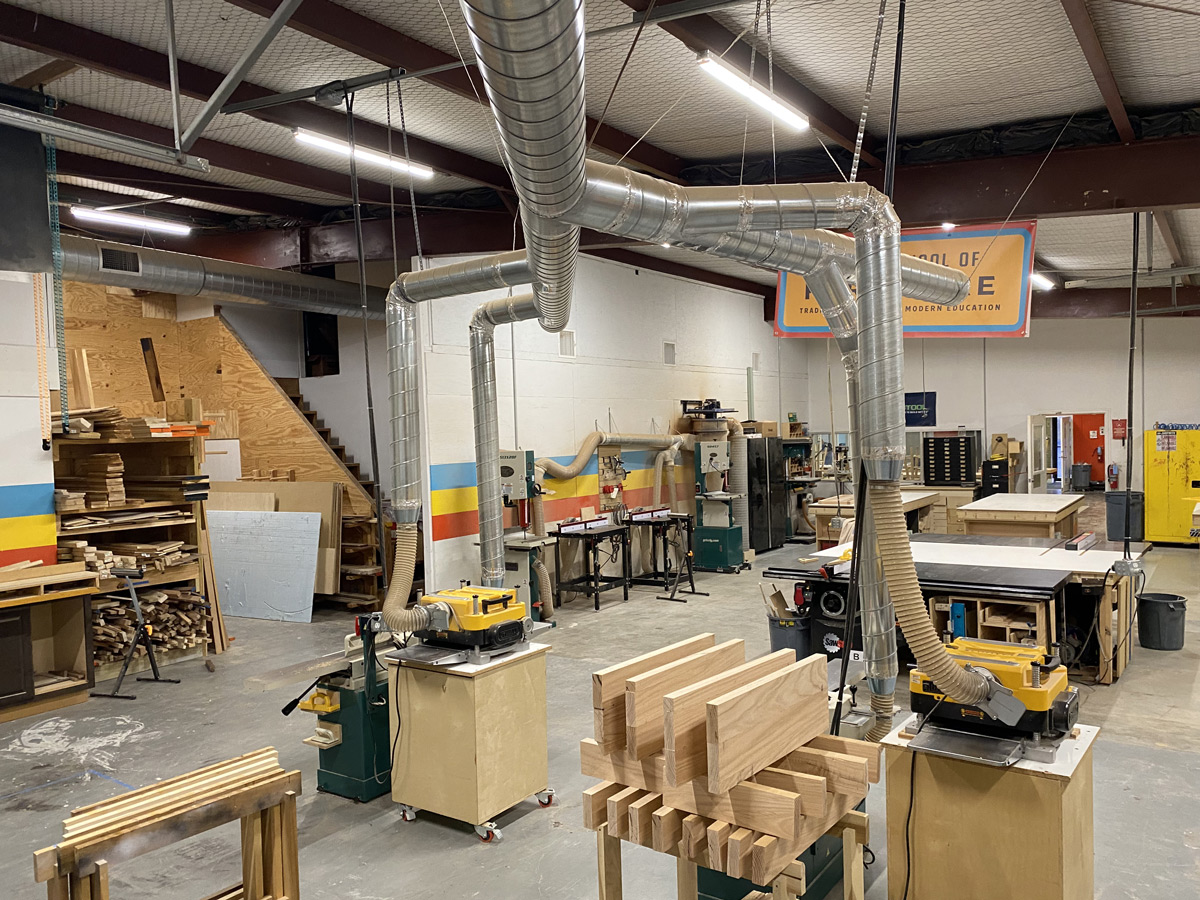The Austin School of Furniture is a 501(c)(3) Non-Profit woodworking and furniture school designed for dedicated hobbyists and aspiring professional furniture makers. The school offers a variety of classes for woodworkers of any skill level and background.
When Austin Waldo found that members of his local woodworking club were looking for more educational opportunities, he began to gather a team who could turn that idea into a business. Today, the Austin School of Furniture aims to make comprehensive woodworking education more accessible. As a nonprofit, the school uses donations to provide a welcoming and affordable space where both beginners and skilled woodworkers can learn, grow, and thrive.
In a shared workspace like the school’s shop, proper dust collection is key for safety and efficiency. Austin and his team found that most of the professional shops they had worked in used Oneida Air Systems dust collectors and spoke highly of the performance. When it came time to add tools to the new space, Oneida Air Systems was their first choice.


Recently, we caught up with Austin Waldo, Managing Director of the Austin School of Furniture, to learn more about this unique organization in the woodworking community. Read the full interview below!
How did the Austin School of Furniture come about?
"I started the school back in 2018 coming out of the woodworking club that I had also started. When I moved to Austin, I was looking for a woodworking community and everything I found was pretty isolated given that the hobby is often a solo expedition in your garage by yourself. There were a few clubs but they tended to be more focused on a narrow breadth of woodworking only and there wasn't much of a social aspect. So I ended up starting my own woodworking club that was essentially a drinking club with a woodworking problem - we met at breweries and did some tabletop 'show and tell' with photos on our phones, and would get together for shop tours and small lessons and things like that. The club kept growing and members were looking for more education.
At the time, I had been taking classes at the local community college and met an individual by the name of Philip Morley. He had gone a more traditional route of trade school back where he is from in London, so he had a lot of experience in the traditional track pursuing woodworking as a trade and having an apprenticeship. We ended up talking about what a modern version of a woodworking school in Austin would look like, and got a few other people together to start developing an initial curriculum and eventually got started with our first classes in the beginning of 2018. About 5 months ago, we turned the school into a 501(c)(3) nonprofit."
What is the best part of introducing a new student to woodworking?
"There always seems to be a lightbulb moment once a new student starts to understand something. There are these moments where you can see our students may be a little confused about why we do things or how to do them, and then at some point they're like, 'Oh yeah, ok, now I get it!' You see that moment where they really get a lot of enjoyment and excitement from what they're learning, and there's that 'aha' moment that happens. I really enjoy not only running the school but teaching and being able to share that experience with individuals where they get the same passion out of this craft that I do."

What common challenges do beginners often encounter?
"Understanding what tools to start with is always a big question for beginners - 'What should I buy?' They often either want to go as cheap as possible or as expensive as possible. Both have their pros and cons, so we try to provide as much of the tooling and machines as we can so they can have the opportunity to come in and try a low-, middle-, and high-priced option of different tools. What tools to buy and how to use them properly is always a big part of what we're doing."
What brought you to using Oneida Air Systems for the school's dust collection?
"When we first started, we didn't have any machines. It was a small 261 square foot room where we just had a couple benches and hand tools only, but it was part of a larger woodworking community shop and in that shop they had all [Oneida Air] dust collectors. Without having any reason to be selling to us, suddenly we were seeing these professionals using [Oneida Air Systems] and seeing a lot of good results from the people using them. Firsthand experience and input is definitely the way to get really good information. So when the opportunity came for us to expand and start getting machines, we went straight to [Oneida Air Systems] to see what was available."

Do you talk about dust collection in your curriculum?
"We do talk about it a little bit. We talk about how important it is for a lot of machines that the dust be pulled out of the machine to help increase its longevity, but then also from a health standpoint the importance of good filtration to really keep as much of that dust out of the air you're breathing as possible. We often tell students that as they expand into the milling machines, that's when they should be looking at something that has a lot more capacity. Instead of having five vacuums hooked up to five tools, they can look at some of the smaller units that [Oneida Air] has for a good starting place."
Where would you put a dust collector on the scale of new tools for a beginner to get?
"I would say for beginners it's almost always going to be about money, and as you progress you start to understand value beyond just the money. There's the saying 'buy once, cry once' where if it is expensive, you are often buying a better machine. If you plan to do this a lot, you're not going to regret going for a higher quality machine in the long term. A lot of people want to DIY their own dust collection which is fine if that's what you like to do, but you're going to spend a lot of time doing that and you're probably not going to have quite as superior a result. We try not to do any hard selling, but just tell students, 'Here's what we use and here's what we've found are the benefits.'"
Has anyone approached you asking how to replicate the school elsewhere?
"I have had people call and talk about starting a school and I'm just very honest with them: to my knowledge, there is not a school director that is involved with a woodworking school because of the money. There's not a lot of profit margin in a non-scalable craft like woodworking. So I think there is a huge benefit to the community and a lot of enjoyment that someone can get out of being involved with a school, but the folks that I have talked to usually have some other means of revenue for themselves."

What message would you like to share about the Austin School of Furniture?
"Although we've been around since 2018, we're still very new in terms of the nonprofit so we are looking for donations and help fundraising. The biggest thing for the Austin School of Furniture in terms of its long term success is figuring out a way to buy a property, so we're always looking for more individuals to get involved and to help us with the fundraising."
What are your thoughts on your Oneida Air Systems dust collection?
"We're very happy with the machines. We use them pretty much every single day and they've done well for us. We're happy to work with [Oneida Air] as much as we can."


















